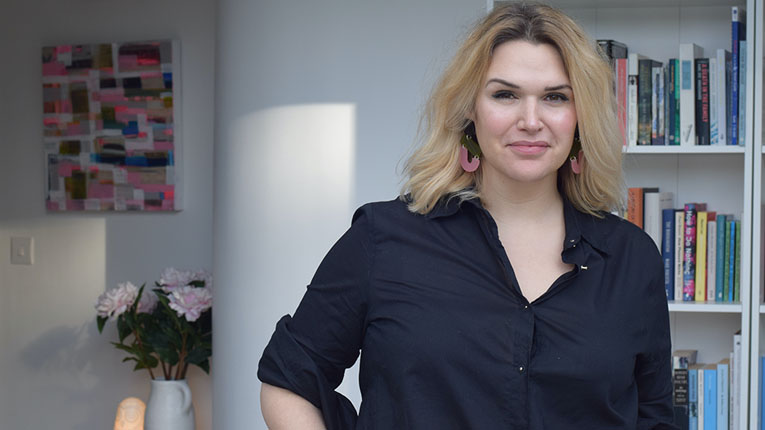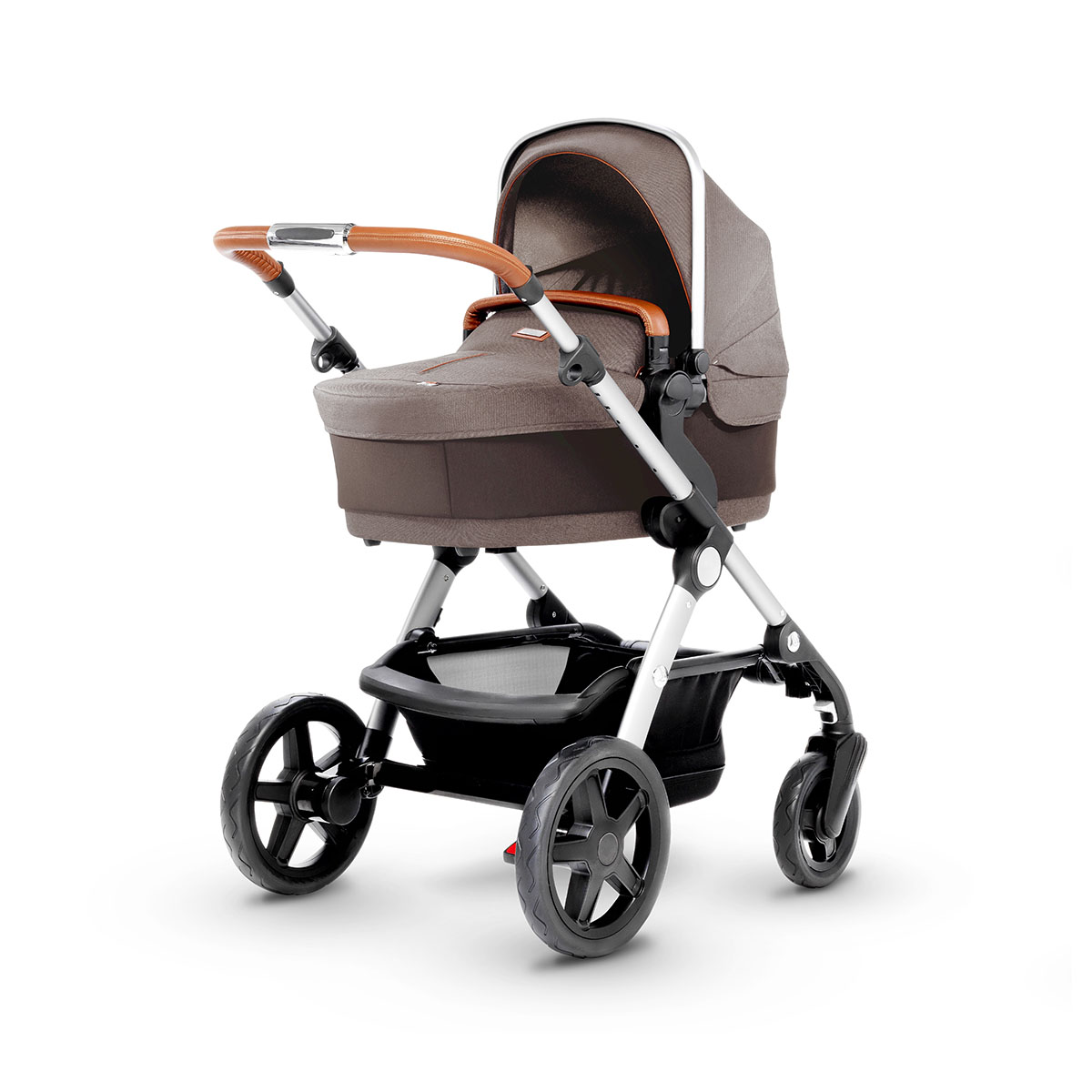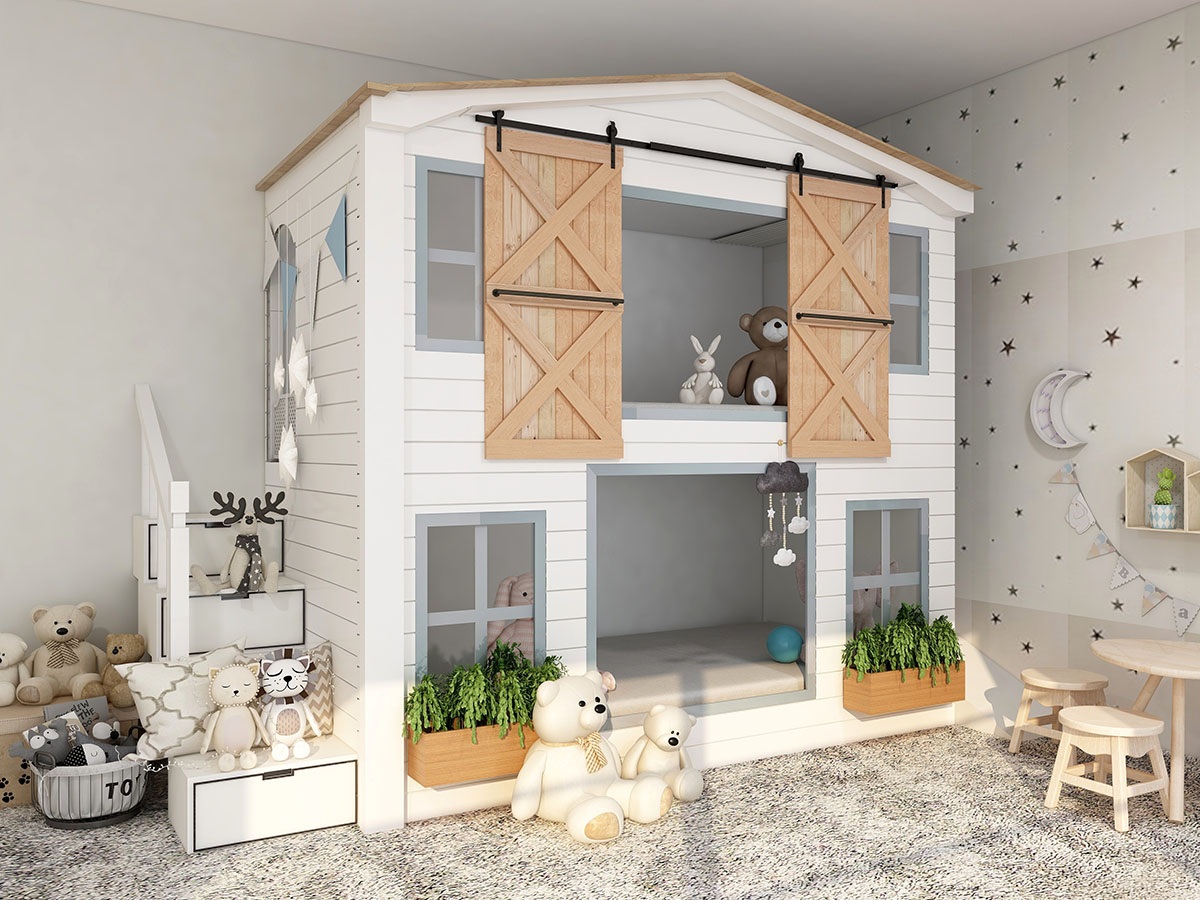Meet Start-up of the Year Ireland winner Sarah Ouellette of Kindora

Posted: Mon 1st Mar 2021
In July 2020, Sarah Ouellette started informally working on her business idea. Fast forward a few months and her Dublin-based enterprise is preparing to expand to seven locations across Europe.
When you look at what Kindora is and how it's been set up, it's easy to see why. By creating a marketplace to buy, rent and sell premium baby and children's goods, Sarah has tapped into trends like convenience and conscious consumerism while tackling numerous parental pain points.
It's a true recipe for success, which is why Kindora - with the backing of angel investors - is planning its continental expansion. It's also why it's deservedly been named our Start-up of the Year Ireland.
We caught up with Sarah to discover more about launching such a successful business in such a short space of time - and what it's like to win an award when parental commitments kind of get in the way of the announcement.
Sarah, where did the idea for Kindora come from?
A mixture of spending 20 years working around the world for big media companies - which gave me a really interesting cross section of experience - and being a huge fan of re-commerce platforms. I love the term 're-commerce'.
We also had all this stuff that my daughter Cleo had accumulated. Some stuff she didn't like, other stuff she only used twice. Stuff got replaced with more stuff. Then, when I was making a wish list on Vestiaire Collective, it came to me: 'Surely there's somewhere I can do this with baby stuff?' But there wasn't.
A week later, I did some primary research with 100 parents that revealed a massive gap in the market. People shop through speciality marketplaces for trainers, watches and vintage furniture, but they don't have the same option for baby goods.
How big was this gap?
Parents buy really good stuff when they have a baby, often with the intention of selling it on later. But they end up on Facebook Marketplace, where they have to answer lots of questions, deal with tyre kickers and invariably drop their price. It's a hassle.
It became clear very quickly that that we could solve these problems if we learned from a model like Vestiaire. There's a company in Canada, Rebelstork, doing something similar. Now, we're the two leading the charge.
Below us are a number of cottage industries. In the UK for example lots of people buy buggies, refurbish them and then sell them on. But they only do buggies, and they're limited by geography. They have the opportunity to plug into Kindora to grow their business.
By addressing very specific pain points, have you created a model that's more than a marketplace?
We call Kindora an enhanced marketplace because we add three additional layers of service, starting with curation. We really screen everything that comes into our collection.
Second, we do hospital-grade cleaning of every item. A really big pain point that came out of our research was that people are worried about cleanliness - now even more so.
Third, we'll source things for people. We often have people who contact us because they're looking for a very specific item, which we can find for them.
Has the baby goods market shifted - like so many others have - in terms of people buying more consciously?
Absolutely. People are recognising the need to be more conscious in their buying choices because this is the planet their babies will inherit. We're trying to make buying baby goods as easy as buying from John Lewis, with the added benefit of saving waste and money. It's a chance for children to learn these values, too.
Good buggies can be used by three or four families and maintain their integrity. If you bought a second-hand one, you'd save the equivalent of 1,000 disposable coffee cups' worth of waste.

We say to people: buy better and buy less. If you buy the right things, you don't need to buy as much - and the resale value is higher. We understand why people want a €100 pram. But if they buy the €300 one, we can sell it for them for €250 when they're done with it.
How scalable is the Kindora model?
We're selling things faster than we can get them in. Since we launched in November, we've sold 80% of the stock that's come through the marketplace.
One of our biggest challenges is scalable sourcing. We're focusing on where the bestselling products are located, which for us is Dublin and Cork. If you're in either, you can submit your goods to be assessed.
We'll let you know if they meet our criteria and, if they do, we'll pick them up for free. We'll be replicating this model across seven urban centres in Europe, where we know there are families who want to buy 'well'.
The model also works for people outside of urban centres; we just have to charge for shipping because we can't get to the items ourselves. We'll probably be working to an 80/20 rule - 80% of goods coming from us doing free pick-ups.
Rewinding a bit, how did you go from marketplace idea to actual marketplace?
We started working on the idea in July 2020, we registered the business in August, and we went live with V1 of the marketplace - which is what you see now - in November. It was very fast. Faster than we anticipated.
We could have spent a year planning, but it was better to get something simple up and running and stress test it live in the market. We have the advantage of being in Ireland where a lot of babies are born every year, and where parents spend relatively large amounts of money.

What help did you receive during that very fast setting-up stage?
Two angel investors came in before we went live, on the premise that there's something interesting in this pilot - a phase we're still in, by the way. They see the opportunity in Europe, and they were keen for us to get something live in the market just to sound out the model. We've now proven that it works.
I should mention my business partner, Barry [Hanley], who joined the business in September. The two of us anticipated where we'd like to be in Q2 2021, and we're well ahead - which is fantastic, but also slightly terrifying because we have to meet the demand now.
We're heading towards 800 people in our database, all of whom have a clear intention to buy, sell or rent. But because we have more buyers than sellers, we're soon going to hit the ceiling on what's available in the Irish market. That's why we're going into Europe.
Your word-of-mouth recommendations must be through the roof?
One of the reasons we started Kindora is that we want to be there for all types of families. In Ireland, you don't see representations of gay families very often, nor mixed-race families or families of divorced parents. So consciously, we want that to be a part of our narrative.
For example, I always say that we're perfect for parents who are separated, because they could both have the same really good items in their respective homes - and in an affordable way.
Finally, congratulations on winning Start-up of the Year Ireland!
We were so genuinely shocked and thrilled to win! It was actually very funny, and talks about what parents are going through right now.
We did our pitch. It was great. I was watching my clock because I had to pick up my daughter from the childminder. My business partner Barry was helping his daughter do homeschooling - so both of us missed the announcement that we'd won.
We had no idea! But it speaks to the fact that everyone's trying to do 10 things right now. Honestly, it was the best surprise to find out we had won. We were so thrilled.
Become part of the Enterprise Nation community
We're proud to have entrepreneurs like Sarah as members in our amazing community of small business owners. Join today for the full range of member benefits!
Get business support right to your inbox
Subscribe to our newsletter to receive business tips, learn about new funding programmes, join upcoming events, take e-learning courses, and more.
Start your business journey today
Take the first step to successfully starting and growing your business.
Join for free

